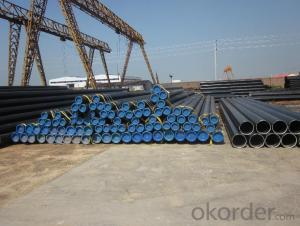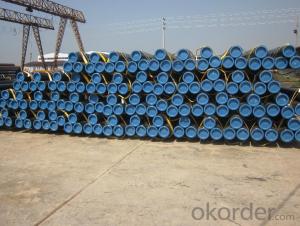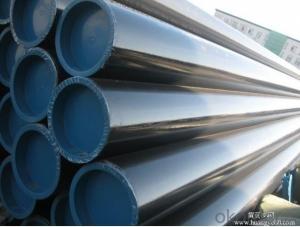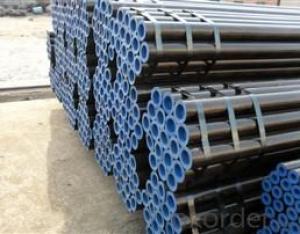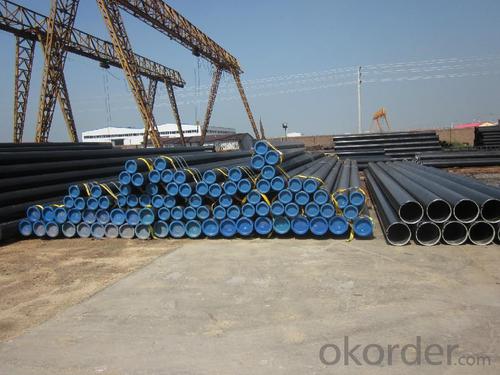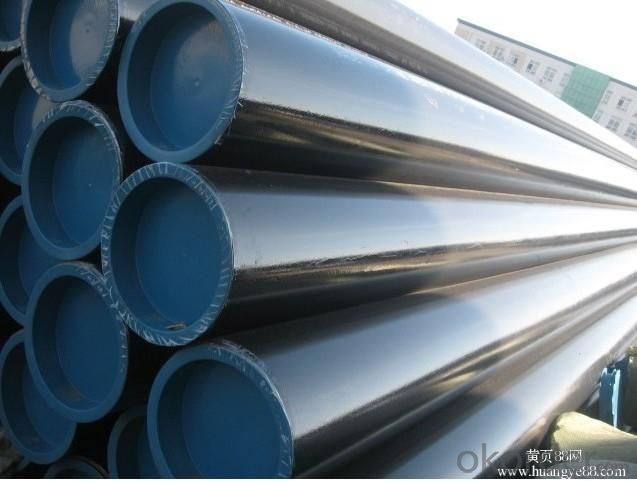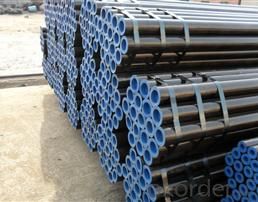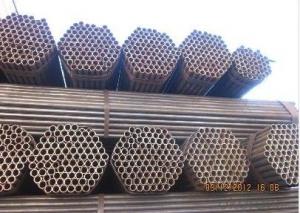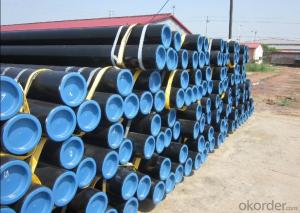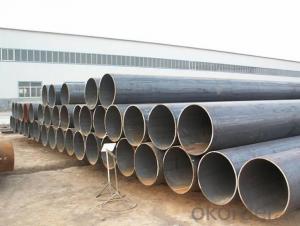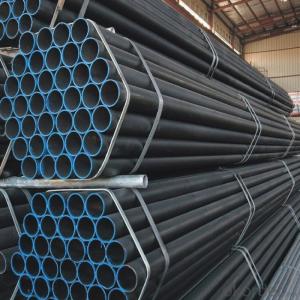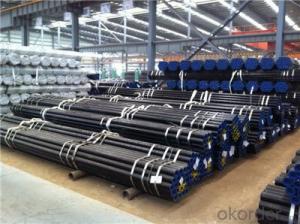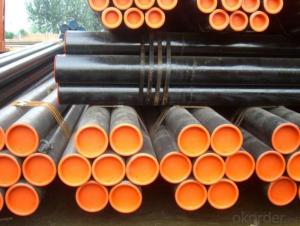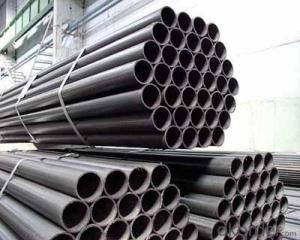CARBON SEAMLESS STEEL PIPES FROM CNBM WITH BEST QUALITY
- Loading Port:
- Tianjin
- Payment Terms:
- TT OR LC
- Min Order Qty:
- 50 m.t.
- Supply Capability:
- 500 m.t./month
OKorder Service Pledge
OKorder Financial Service
You Might Also Like
1、Structure of Steel Pipe Q345 Descrption:
Having vast industrial knowledge of domain, we are offering a quality approved array of Stainless Steel Round Pipe. The Stainless Steel Round Pipe we offer is widely demanded amongst the clients for its sturdiness and reliability. These products are tested for their quality before being introduced in the market.
2、Main Features of the Steel Pipe Q345:
·Highly demanded
·Durable
·Reliable
·resist corrosion
·reasonable price
3、The Steel Pipe Q345 Specification:
Standard JIS, DIN, ASTM
JIS G3445-2006, JIS G3444-2006, JIS G3446-2004, DIN EN 10216-1-2004, DIN EN 10217-1-2005, DIN EN 10305, ASTM A106-2006, ASTM A53-2007, ASTM A789-2001, ASTM A1020-2002, ASTM A179-1990, ASTM A199Grade Cr-Mo alloy, Mo, ST35-ST52, Q195-Q345, CrNi alloy
15CrMo, 10CrMo910, 30CrMo, 15Mo3, 16Mo, St37, St52, St42, St45, Q235, Q345, Q195, Q215, Cr17Ni8, 1Cr13Mn9Ni1NThickness 2 - 50 mm Section Shape Round Outer Diameter 10 - 900 mm Secondary Or Not Non-secondary Application Structure Pipe Technique EFW Certification API Surface Treatment Paint Special Pipe API Pipe Alloy Or Not Non-alloy
Specifications
1.W.T from 2mm to 70mm
2.OD from 10 to 1200mm
3.product by our own factory
4.on time dilivery
4,Steel Pipe Q345 Images:
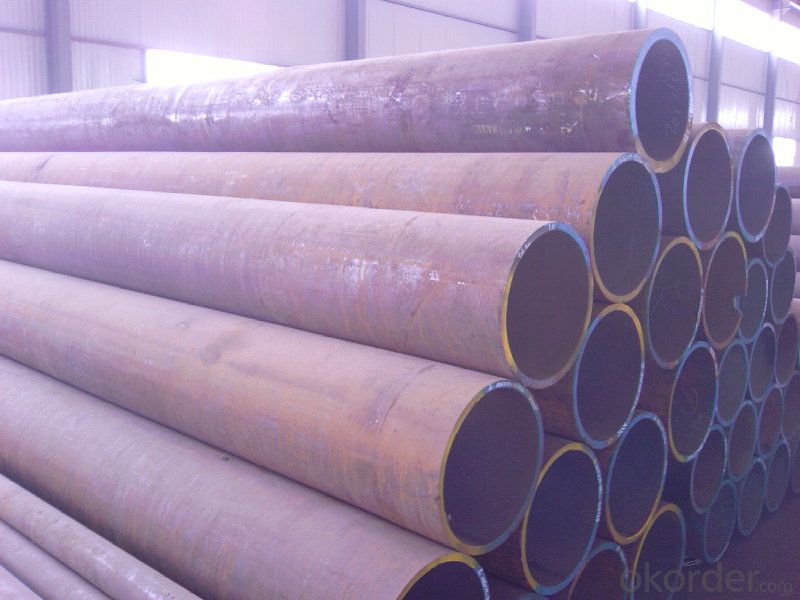
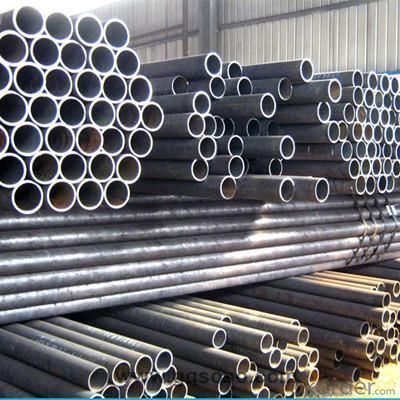
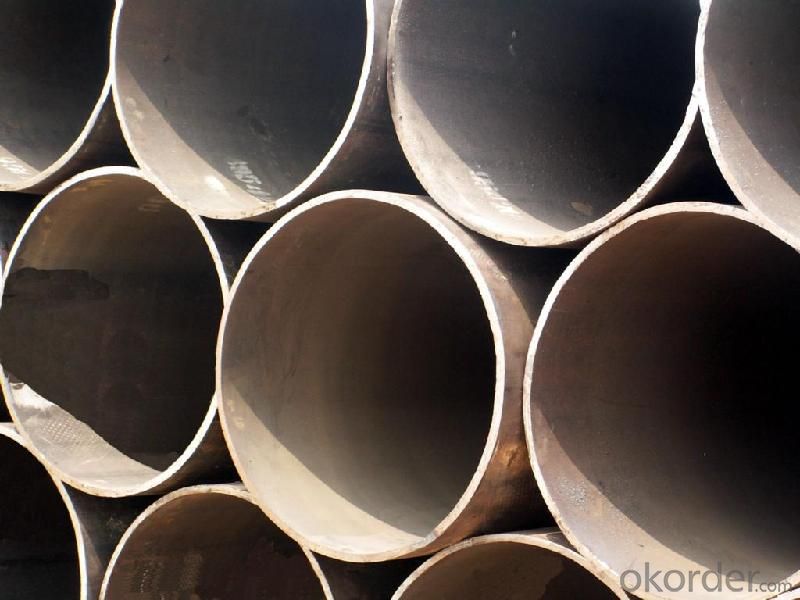
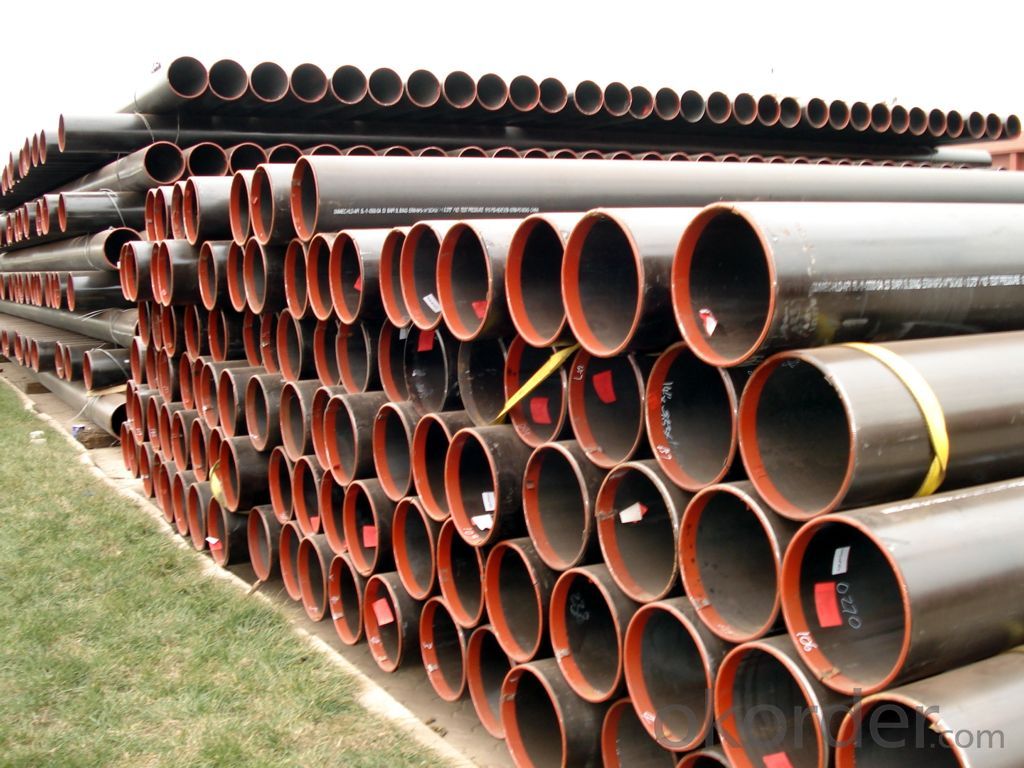
5、FAQ of Square Tube:
①How is the quality of your products?
Our products are manufactured strictly according to national and internaional standard, and we take a test
on every pipe before delivered out. If you want see our quality certifications and all kinds of testing report, please just ask us for it.
Guaranteed: If products’ quality don’t accord to discription as we give or the promise before you place order, we promise 100% refund.
②How about price?
Yes, we are factory and be able to give you lowest price below market one, and we have a policy that “ for saving time and absolutely honest business attitude, we quote as lowest as possible for any customer, and discount can be given according to quantity”,if you like bargain and factory price is not low enough as you think, just don’t waste your time.Please trust the quotation we would give you, it is professional one.
③Why should you chose us?
Chose happens because of quality, then price, We can give you both.Additionally, we can also offer professional products inquiry, products knowledge train(for agents), smooth goods delivery, exellent customer solution proposals.Our service formula: good quality+good price+good service=customer’s trust
SGS test is available, customer inspection before shipping is welcome, third party inspection is no problem.
Any question, pls feel free to contact us !
- Q: How do steel pipes compare to other materials, such as PVC or copper?
- Steel pipes have several advantages over other materials such as PVC or copper. Firstly, steel pipes are incredibly durable and strong, making them suitable for heavy-duty applications and high-pressure environments. Additionally, steel pipes have a longer lifespan compared to PVC or copper, as they are less prone to cracking, corrosion, or degradation. Steel pipes also provide better fire resistance and are more resistant to extreme temperatures. However, steel pipes can be more expensive and require professional installation due to their weight and rigidity. PVC pipes, on the other hand, are lightweight, affordable, and easy to install, but they may not be as durable or suitable for certain applications. Copper pipes offer excellent corrosion resistance and are commonly used for water supply systems, but they can be more expensive and require skilled labor to install. Ultimately, the choice between steel, PVC, or copper pipes depends on the specific requirements of the project and the desired balance of cost, durability, and performance.
- Q: What is the role of steel pipes in the construction of bridges and tunnels?
- The construction of bridges and tunnels heavily relies on steel pipes, which are widely used for various purposes due to their strength, durability, and versatility. When it comes to bridge construction, steel pipes are commonly utilized to fabricate the structural framework of the bridge. They act as the primary load-bearing members, providing support and stability to the entire structure. Steel pipes are particularly favored in bridge construction because of their high tensile strength, enabling them to withstand heavy loads, including the weight of vehicles and the dynamic forces generated by traffic. Steel pipes are also essential in the construction of bridge piers and abutments, which serve as the foundation and support for the bridge structure. To create sturdy foundations that can withstand the forces exerted by the bridge's weight and external factors such as wind, water currents, and seismic activity, steel pipes are often driven deep into the ground. Similarly, in tunnel construction, steel pipes play a critical role. They are extensively used for tunnel lining, which involves the installation of structural elements along the tunnel walls and roof to ensure stability and prevent soil or rock collapse. Steel pipes are commonly used as reinforcement elements, ensuring the structural integrity of the tunnel and protecting it from external pressures. Furthermore, steel pipes are utilized for underground utility systems in both bridges and tunnels. They act as conduits for various utilities, including water supply, electrical cables, gas pipelines, and communication lines. Steel pipes are ideal for these applications because of their corrosion resistance, ability to withstand high pressures, and long lifespan. In conclusion, steel pipes are crucial in the construction of bridges and tunnels as they provide strength, stability, and durability to these structures. They play a vital role in ensuring the safety and functionality of these critical infrastructure projects, allowing for efficient transportation and the seamless provision of utilities.
- Q: How do you determine the required support spacing for steel pipes?
- The required support spacing for steel pipes is determined based on several factors including the pipe material, size, weight, and operating conditions. Generally, industry standards and guidelines such as those provided by the American Society of Mechanical Engineers (ASME) are followed to calculate the appropriate spacing. These standards take into account factors such as pipe deflection, thermal expansion, vibration, and load-bearing capacity to ensure the pipes are adequately supported and do not experience excessive stress or deformation.
- Q: Are steel pipes suitable for underground compressed air systems?
- Yes, steel pipes are generally suitable for underground compressed air systems. Steel pipes have several advantages that make them a popular choice for such applications. Firstly, steel pipes are known for their high strength and durability, which allows them to withstand the pressure and stress associated with compressed air systems. They can handle high operating pressures without any significant risk of bursting or leaking. Secondly, steel pipes have excellent resistance to corrosion and can withstand exposure to moisture, soil, and other underground elements. This makes them a reliable choice for underground installations, where pipes may be exposed to moisture and other potentially corrosive substances. Furthermore, steel pipes are relatively easy to install and maintain. They can be welded or threaded together, ensuring a secure and leak-free connection. Additionally, steel pipes can be easily inspected and repaired if necessary, allowing for cost-effective maintenance and repairs. However, it is important to note that the suitability of steel pipes for underground compressed air systems may also depend on other factors such as the specific requirements and conditions of the system. It is advisable to consult with a professional engineer or a qualified expert to ensure that steel pipes are the most appropriate choice for a specific application.
- Q: How are steel pipes used in the manufacturing of aerospace components?
- Steel pipes are commonly used in the manufacturing of aerospace components for various purposes such as fuel and hydraulic systems, structural supports, and exhaust systems. These pipes provide strength, durability, and resistance to high temperatures and pressure, making them suitable for critical applications in the aerospace industry.
- Q: What is the difference between Schedule 40 and Schedule 80 steel pipes?
- The main difference between Schedule 40 and Schedule 80 steel pipes lies in their wall thickness. Schedule 40 pipes have a thinner wall, making them suitable for low-pressure applications, while Schedule 80 pipes have a thicker wall, making them suitable for high-pressure applications.
- Q: What are the different types of pipe coatings used for corrosion protection?
- There are several different types of pipe coatings used for corrosion protection. These coatings are applied to the exterior surface of pipes to prevent or delay corrosion, ensuring the longevity and integrity of the pipes. Some of the commonly used pipe coatings for corrosion protection include: 1. Fusion-Bonded Epoxy (FBE) Coatings: FBE coatings are widely used for corrosion protection due to their excellent adhesion and resistance to chemicals, moisture, and abrasion. These coatings are applied by heating the pipe and spraying it with epoxy powder, which then melts and forms a protective layer upon cooling. 2. Polyethylene (PE) Coatings: PE coatings are known for their flexibility and resistance to impact and chemicals. These coatings are typically applied by extrusion or wrapping methods and provide excellent resistance against water, soil, and other corrosive substances. 3. Polyurethane (PU) Coatings: PU coatings offer good resistance to chemicals, moisture, and mechanical damage. They are commonly used for underground pipelines and are applied by spraying or brush coating methods. 4. Coal-Tar Enamel Coatings: Coal-tar enamel coatings are suitable for protecting pipes exposed to highly corrosive environments such as marine conditions or underground applications. They are typically applied by hot or cold wrapping methods and provide excellent resistance to water, acids, and alkalis. 5. Metallic Coatings: Metallic coatings such as zinc, aluminum, or zinc-aluminum alloys are often used as sacrificial coatings to protect the underlying steel pipes. These coatings corrode preferentially, sacrificing themselves to protect the pipe from corrosion. 6. Asphalt Coatings: Asphalt coatings provide a robust barrier against moisture, chemicals, and soil. They are typically applied by hot or cold wrapping methods and are commonly used for underground pipelines. It is important to consider factors such as the specific environment, temperature, and expected lifespan of the pipes when selecting the appropriate type of pipe coating for corrosion protection.
- Q: What are the different types of joints used to connect steel pipes?
- Some of the different types of joints used to connect steel pipes include butt joints, socket weld joints, threaded joints, flanged joints, and grooved joints.
- Q: How are steel pipes coated to prevent internal corrosion?
- Steel pipes are coated to prevent internal corrosion through a process called internal coating. This involves applying a protective layer of epoxy or polyethylene coating on the inner surface of the pipes. This coating acts as a barrier between the steel surface and the fluid being transported, preventing the corrosive elements from coming into direct contact with the steel and reducing the risk of internal corrosion.
- Q: How are steel pipes used in the manufacturing of telecommunications infrastructure?
- Steel pipes are commonly used in the manufacturing of telecommunications infrastructure for various purposes such as underground cable protection, overhead cable support, and antenna mounting. They provide durability, strength, and corrosion resistance, ensuring the longevity and reliability of the infrastructure. Additionally, steel pipes allow for easy installation and maintenance of telecommunications equipment, making them an essential component in the industry.
Send your message to us
CARBON SEAMLESS STEEL PIPES FROM CNBM WITH BEST QUALITY
- Loading Port:
- Tianjin
- Payment Terms:
- TT OR LC
- Min Order Qty:
- 50 m.t.
- Supply Capability:
- 500 m.t./month
OKorder Service Pledge
OKorder Financial Service
Similar products
Hot products
Hot Searches
Related keywords
